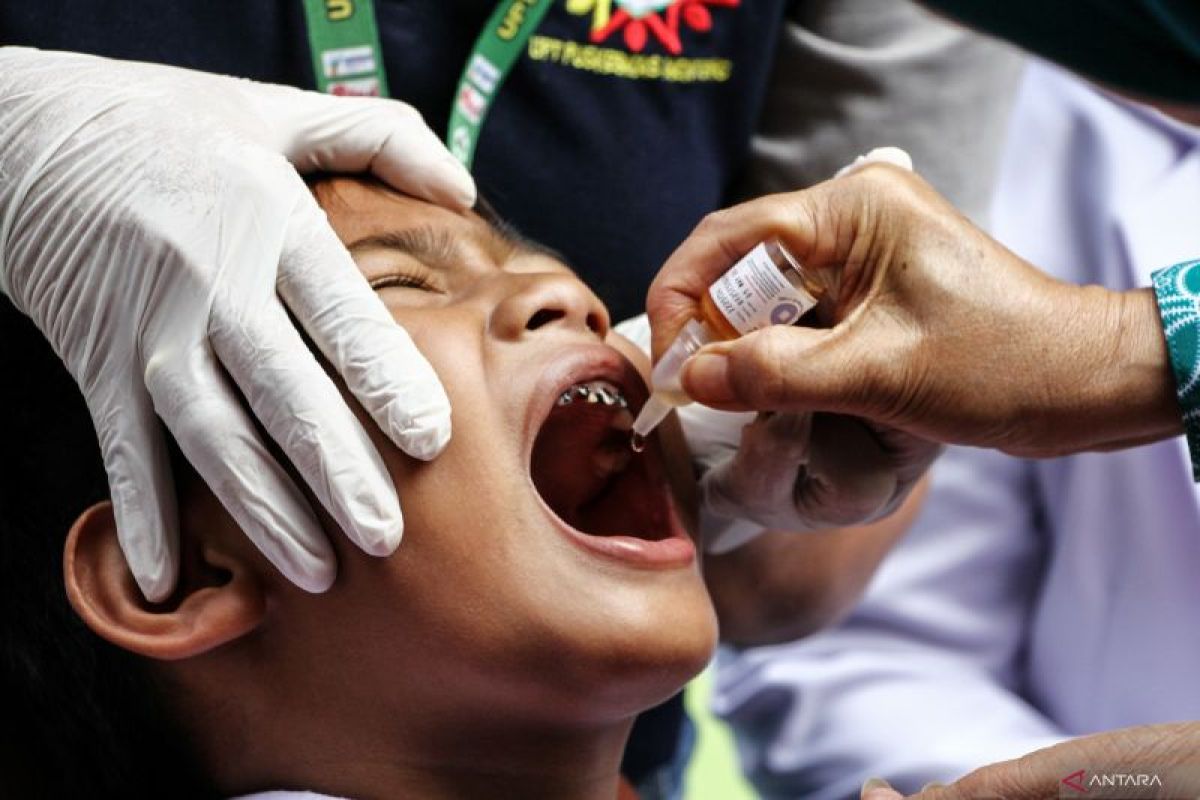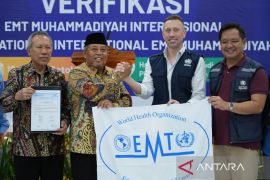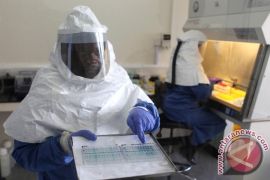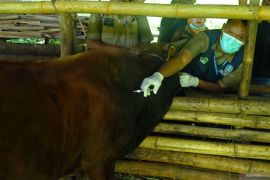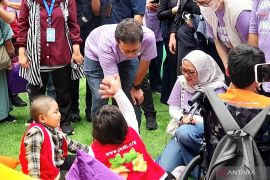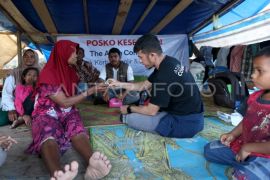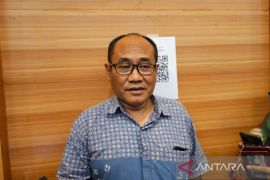He said no poliovirus had been detected in children or the environment since June 2024, leading the World Health Organization (WHO) to declare the outbreak over on November 19, 2025.
Sadikin praised the dedication of health workers, parents, communities, and partners who supported the nationwide vaccination effort.
"Every child deserves protection. We must ensure polio does not return by keeping routine immunization complete and age-appropriate," he said in a statement.
He reminded that Indonesia must remain vigilant, as gaps in immunization coverage persist in several provinces and continue to pose risks.
With the outbreak officially closed, he added, the government reaffirmed its commitment to maintaining Indonesia's polio-free status through stronger routine immunization, enhanced surveillance, cross-sector collaboration, and community participation.
WHO Regional Director for the Western Pacific Saia Ma'u Piukala called Indonesia’s achievement a crucial milestone toward a polio-free world.
"It also reinforces the region’s ability to retain its polio-free status, achieved 25 years ago," he said. "One day polio will be just a memory. Until then, we will vaccinate."
Indonesia recorded its first cVDPV2 case in October 2022 in Aceh. Subsequent cases appeared in Banten, West Java, Central Java, East Java, North Maluku, Central Papua, Highland Papua, and South Papua. The last case was confirmed in South Papua on June 27, 2024.
The government responded with two rounds of nationwide vaccination using the novel OPV-2 (nOPV2) vaccine between late 2022 and the third quarter of 2024.
Routine immunization coverage also improved, with the second dose of inactivated polio vaccine (IPV) increasing from 63 percent in 2023 to 73 percent in 2024.
To accelerate IPV uptake, the Health Ministry introduced a hexavalent vaccine that protects against six diseases, including polio, diphtheria, pertussis, tetanus, hepatitis B, and infections caused by Haemophilus influenzae type b.
The vaccine is expected to reduce the number of injections, save costs for families, and speed up children’s immunity development.
The program began in October in Yogyakarta, West Nusa Tenggara, Bali, and six provinces in Papua, with nationwide rollout planned next year.
Indonesia also strengthened surveillance of Acute Flaccid Paralysis (AFP), improving case detection sensitivity and stool specimen adequacy among children.
An independent global team assessed the response quality through Outbreak Response Assessments (OBRA) held in July 2023, December 2024, and June 2025.
The team concluded that Indonesia implemented a high-quality response, followed recommended improvements, and reported no new cases.
The WHO therefore confirmed that Indonesia had met all criteria for outbreak closure.
This achievement was supported by collaboration with WHO, UNICEF, UNDP, the Clinton Health Access Initiative, and Rotary International, alongside the dedication of health workers and communities nationwide.
UNICEF Indonesia Representative Maniza Zaman said the closure shows what can be achieved when communities, health workers, and partners unite.
"We must keep up the momentum so every child receives the immunization they need to grow up healthy and free from polio and other vaccine-preventable diseases," she said.
Related news: Government prepares polio vaccines for Hajj pilgrims, officers
Related news: Govt urges Jakarta covering 1.2 million children for polio vaccination
Translator: Mecca Yumna Ning Prisie
Editor: Anton Santoso
Copyright © ANTARA 2025
